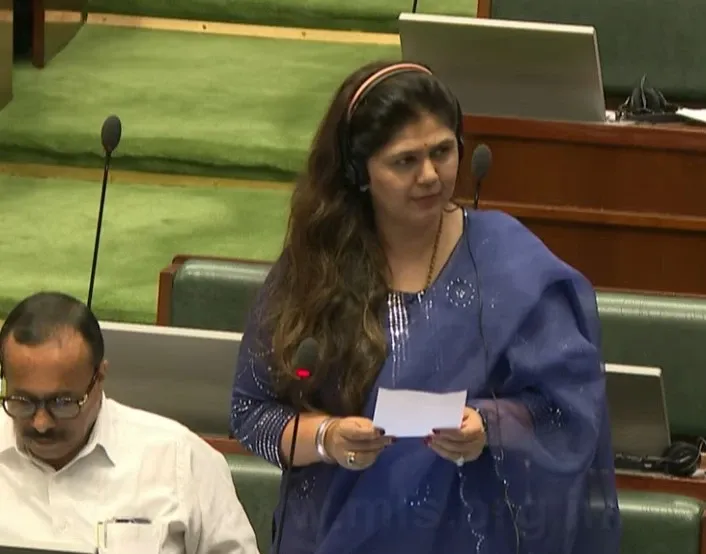Has the Maha cabinet granted agricultural status to livestock farming?

Synopsis
Key Takeaways
- Maharashtra is the first state to grant agricultural status to livestock farming.
- 76.41 lakh families will benefit from this initiative.
- Expected income increase of Rs 7,700 crore.
- Support for small-scale farmers emphasized.
- Implementation aims to boost rural employment.
Mumbai, July 11 (NationPress) In a pivotal policy transformation, the Maharashtra Cabinet has officially recognized livestock farming as an agricultural activity, aiming to provide substantial relief and new advantages to farmers involved in dairy, poultry, goat, and pig rearing.
The announcement was made by Animal Husbandry Minister Pankaja Munde in the state Assembly on Friday, emphasizing that this initiative is designed to aid small-scale livestock farmers in rural communities, while excluding large commercial operations like hatcheries.
Maharashtra proudly becomes the first state in India to grant agricultural status to livestock farming.
Munde highlighted that this decision will positively impact 76.41 lakh families engaged in livestock farming, with an anticipated income boost of Rs 7,700 crore through livestock production.
Furthermore, she pointed out that while the agriculture sector contributes 12 percent to the Gross State Domestic Product (GSDP), the animal husbandry sector accounts for 24 percent.
“Poultry farms with up to 25,000 broilers or 50,000 layers, hatcheries with a capacity of up to 45,000, dairy units with a maximum of 100 animals, goat/sheep farms with up to 500 animals, and pig farms with a limit of 200 animals will now be eligible for agricultural electricity rates,” she explained.
“They will also qualify for subsidies on solar pumps and solar equipment, aligning with the agriculture sector,” she continued.
According to Munde, livestock farmers will now benefit from up to 4 percent interest subsidy on project loans obtained through Kisan Credit Cards, similar to the provisions of the Panjabrao Deshmukh Interest Subsidy Scheme.
Additionally, Gram Panchayats will impose agricultural tax rates on livestock and poultry farms, effectively lowering the local tax burden on farmers.
“This initiative will foster sustainable farming, create rural jobs, and strengthen economic stability within the sector,” Munde remarked, asserting that its implementation is set to catalyze a major transformation in animal husbandry across Maharashtra.
She referenced a 2021 NITI Aayog report that underscored the need for planned and scientific management in the livestock sector, recommending measures to mitigate financial risks for livestock farmers.










